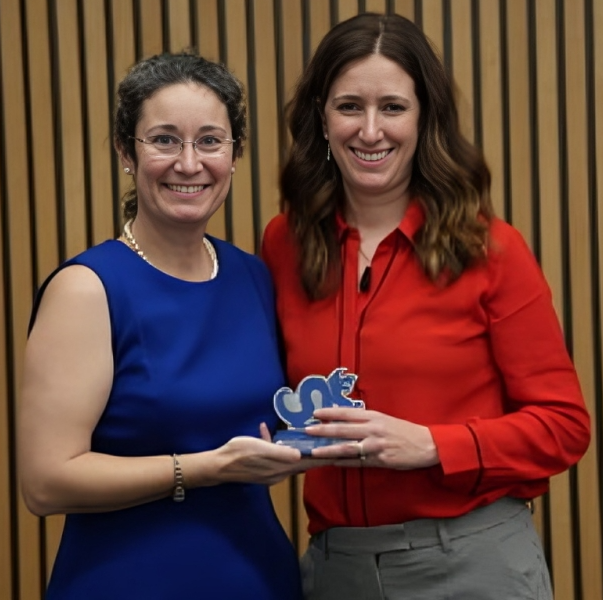Jaramillo completes ELATES, accepted into AAAS fellowship
EPP Professor Paulina Jaramillo is honing her policy outreach skills by participating in prestigious fellowship programs.
Paulina Jaramillo is strengthening her department’s policy outreach and engagement processes by pivoting immersive learning opportunities into practical framework development.
Jaramillo, a professor of engineering and public policy, completed the ELATES at Drexel fellowship—a national leadership development program for women in STEM fields in academia—in March. For the institutional action project aspect of the program, Jaramillo began developing a framework “for Carnegie Mellon University to lead in energy and climate policy by anticipating policymakers’ needs and enhancing systematic outreach efforts.”
She has since been accepted into the AAAS Science & Technology Policy Fellowship 2024-2025 cohort, where she will expand on that work by serving as a climate science fellow in Washington, DC, for one year beginning in September. The program aims to ensure policy is informed by rigorous scientific evidence, and in turn, to foster a network of STEM leaders with robust understanding of government and policymaking.

Source: Paulina Jaramillo
ELATES Director Sharon Walker and Paulina Jaramillo
At ELATES, her work focused on how to improve policy outreach, Jaramillo said. During the AAAS fellowship, she aims to better understand how Congress works from the inside, make meaningful connections, and learn how to most effectively engage with such a dynamic, rotating staff. Jaramillo will be matched with a congressional office, where she will serve in an advisory role while considering strategies for increasing EPP’s policy impact.
A major challenge for academics seeking to inform policy is how to get involved early enough to maximize impact, Jaramillo said. “You typically see the proposed rulemaking and then submit comments. We want to get engaged instead when the proposed rule is first being designed.” Using the framework she developed at ELATES and the knowledge and connections Jaramillo will develop during the AAAS fellowship, CMU faculty will be better positioned to do that.
Jaramillo and other members of EPP and the Scott Institute have already begun implementing the framework she developed at ELATES, including forming a faculty policy council that will focus on identifying policy-relevant research opportunities, enhancing faculty collaboration, and streamlining outreach efforts with the Office of Government Relations. They have also onboarded key environmental NGO representatives into a dynamic affinity group that aims to foster regular interaction with NGOs engaged in policy advocacy, providing a forum for dialogue and collaboration as well as a showcase for CMU research.
